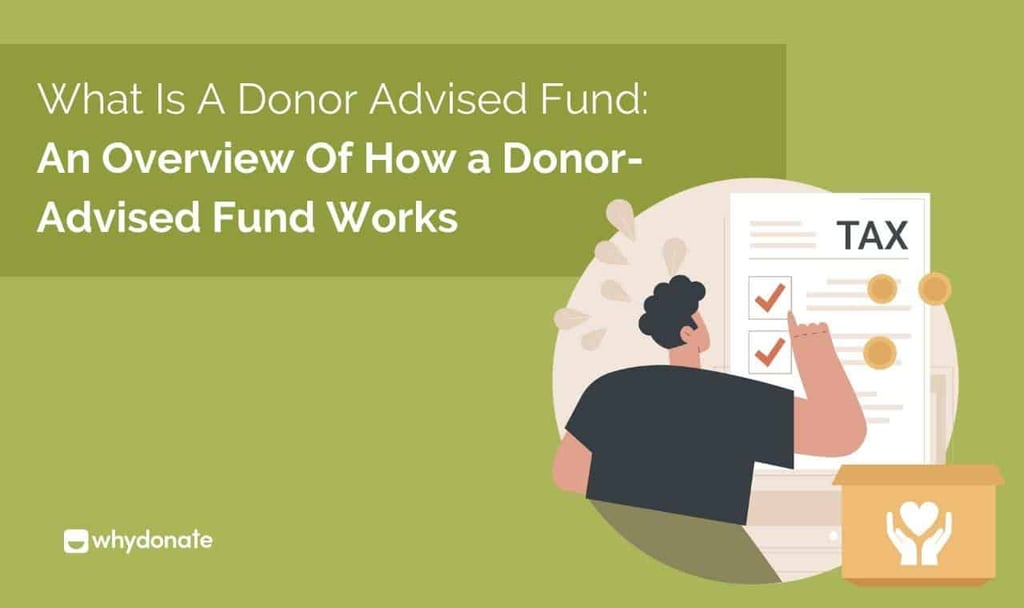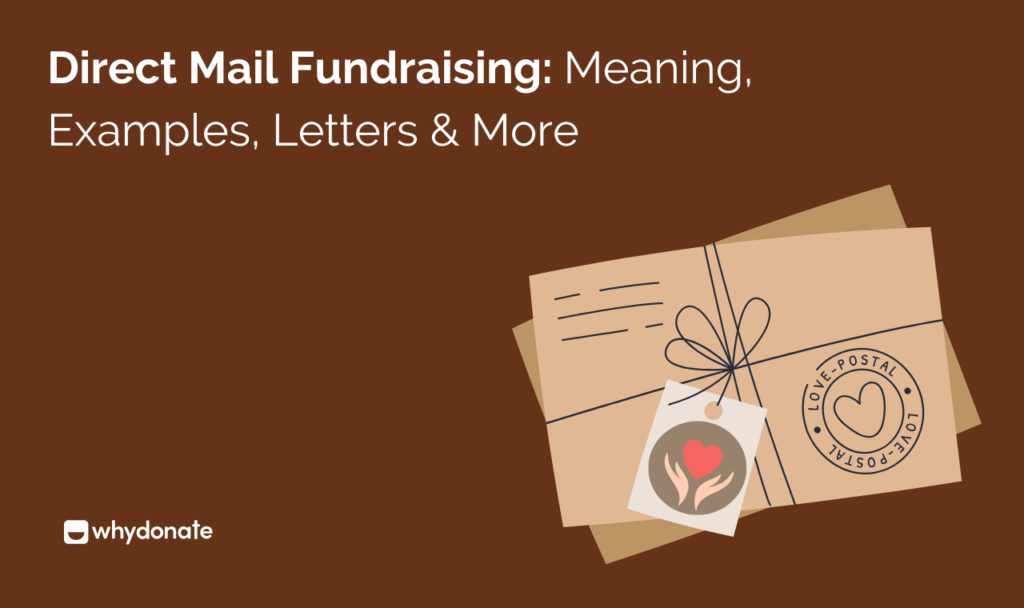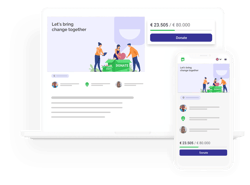A Donor Advised Charitable Fund has quickly become an essential feature of modern philanthropy, providing individuals and families with a way to streamline their charitable giving while taking full advantage of any tax advantages available to them. But just what is a DAF, how are they operated, and are there any disadvantages of donor advised funds?
They provide an in-depth investigation of their operations, from the benefits and disadvantages of donor advised funds. By understanding this type of fund’s intricate mechanisms, donors at all experience levels and magnitude can make informed choices when giving charitable donations.
Join us as we navigate the basics of Donor Advised Charitable Fund, uncovering their power to transform how we give back to communities both near and far.
Start fundraising with Donor Advised Funds to empower donors with flexibility in their charitable contributions. Launch your fundraising campaign now!
Table of Contents
What Is A Donor Advised Fund?
A charitable giving account known as a Donor Advised Fund, or DAF, is a type of giving account that allows individuals to make a tax-deductible contribution to a public charity. It then will enable them to recommend grants to their favourite organisations. Individuals can contribute to the fund as often as they like, and the fund can also provide them with an immediate tax deduction.
The donor advised fund is a type of account that is maintained by a sponsoring organization and is separate from the regular operations of the organization. It is typically composed of contributions from individuals. Once the donations are processed, the organisation can legally control the account’s operations and distribution. However, the donor can have certain kinds of privileges depending on the agreement.
How Does A Charitable Donor Advised Fund Work?
A donor advised fund (DAF) provides various advantages over a traditional charitable foundation, such as its lower cost of management and administration. The rise of donor-advised funds has been attributed to their ability to provide the donor with more control over the distribution and placement of charitable gifts. They also allow companies to offer this type of service to their clients with lower transaction costs. Nonprofits can additionally benefit from this type of fund as it allows them to process large numbers of charitable transactions.

Pros of Donor Advised Fund:
Here are some of the donor advised fund advantages:
Donor Advised Fund Tax Deduction
One of the most significant advantages of DAFs is their ability to provide immediate tax benefits. You can choose to distribute the assets to a charity of your choice or let the money grow tax-free. With complete control over the account’s management, you can also make changes to its composition.
Although giving non-cash assets is more tax-advantageous than giving through credit or cash, many charities find it hard to accept these types of donations. With a Giving Account, you can easily contribute to a charity of your choice. You can also transfer stock from your brokerage account to the charity of your choice.
After establishing a donor-advised fund, you can then recommend an investment strategy that will allow you to grow the account and provide more money to the charity of your choice. Some organizations also have programs that will enable you to select a financial advisor to manage the fund.
Family In Donor Advised Fund
A donor advised fund can also involve the family. It can allow you to set up a family foundation so that your giving can last for many years. This arrangement can be very rewarding, and help members make a more significant impact. It can additionally help you develop a deeper understanding of the charitable activities of the organization.
Organized Fund Management
One of many DAF benefits is that it allows you to keep track of all of the donations that you support without having to keep track of every receipt. You can also recommend a grant to any charity that’s verified and approved by the government.
Donor Advised Funds Pros and Cons
Donor-advised funds (DAFs) have gained traction as a flexible and tax-efficient method for charitable giving. They offer numerous benefits, such as ease of management and immediate tax deductions, but also present certain drawbacks, including administrative fees and potential delays in fund distribution. Understanding these pros and cons is crucial for making informed philanthropic decisions.
Cons of Donor Advised Fund
Here are some of the donor advised funds disadvantages that must be considered:
Not For Everyone
One of many donor-advised fund disadvantages is the fact that these structures allow wealthy individuals to earn tax advantages by taking on assets that are not necessarily their primary assets. Most of the assets in these types of funds are complex and intangible assets, such as art, Bitcoin, and real estate.
Not For Paying Capital Gains Tax
These assets are valued on a cost basis, which means that they are not subject to capital gains tax when they are sold. By holding these assets in a donor-advised fund account, the donors can ensure that they are not subject to tax when the sale of the asset occurs.
Before donating an asset to a donor-advised fund, the owner should ensure that the value is at a fair market value. This way, it is beneficial to financial services corporations as they can profit by adding fees for the services offered by these types of funds.
Only For Charitable Contributions
Grants that provide a personal benefit are not eligible for a tax deduction. However, they can be used for charitable purposes, such as supporting programs at your local church or temple. Your DAF amounts are to be used for these purposes only.

Conclusion
Basically, to sum up, donor advised funds, individuals contribute a certain amount of money to a fund, and it can be anything from cash to stock or other types of assets. The full amount can be deducted immediately, and the funds can then be invested and grow. However, the donors can’t get the money back, and all of the funds must eventually go to a nonprofit. So there are some donor advised funds disadvantages that must be noted. Some donors also like to pick the organizations that receive grants from their funds, while others prefer to let the managers decide.
At WhyDonate, anyone can start a campaign at any time without any complicated rules. WhyDonate is simple, effective, yet affordable to suit all kinds of missions. With free registration, one can simply begin their charitable activity in a few minutes. So start your fundraiser and find the best fundraising-related blogs for further guidance.
Answering Some Charitable Donor Advised Fund FAQs
Q1. Who can apply for a donor advised fund account?
A. Anyone can start a donor-advised fund account, whether they are individuals, families, or organizations.
Q2. Can my family members be involved with my donor advised fund account?
A. Yes, you can choose your family members to be a part of your donor advised fund account.
Q3. How is a donor-advised fund different from a private foundation?
A. Both donor-advised funds and private foundations are used by individuals and families to facilitate their giving. Unlike donor advised funds, private foundations are not run by the government and are subject to more rigorous regulations and tax laws.

















